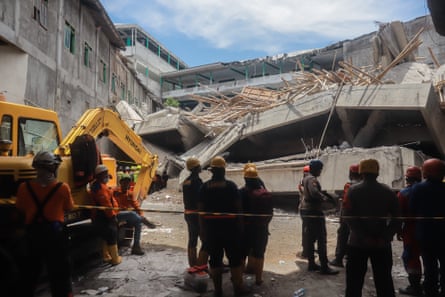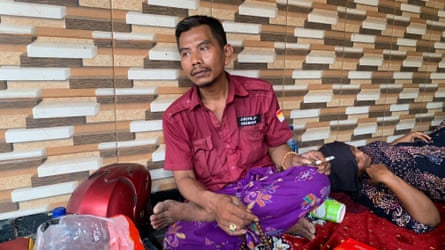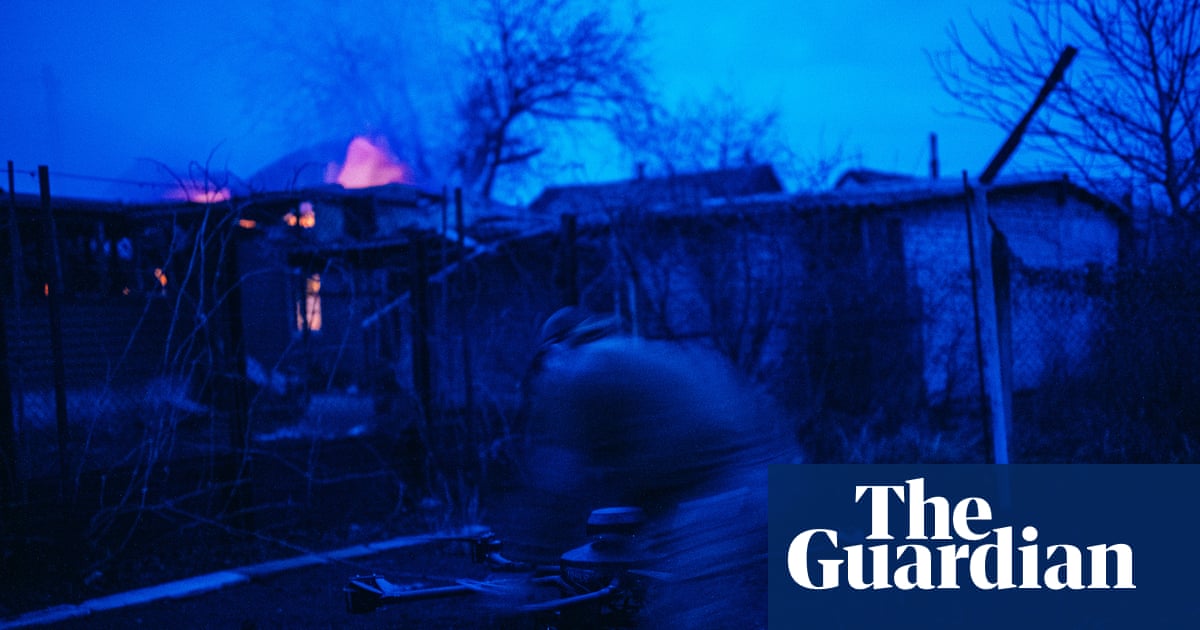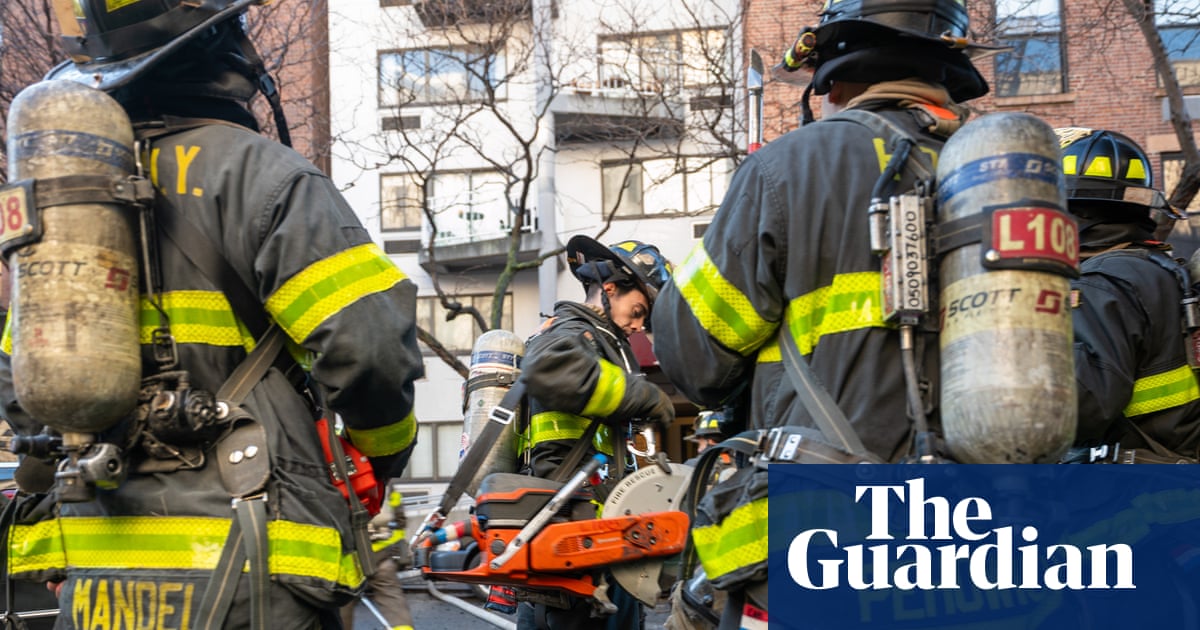As the call to prayer rang out over the boarding school in Indonesia’s East Java on Monday afternoon, the floor beneath more than 100 students gathered in prostration suddenly gave way.
So quickly were the four storeys of the Al Khoziny school flattened that one official described it as a “pancake” disaster.
Three days on, officials believe that 59 people, mostly young male students, remain pinned under the rubble of the Sidoarjo school with at least five confirmed dead as questions about the quality of the construction mount.
Groups of tearful parents were camped out on mats outside the school on Wednesday, some huddled over their phones, others milled around a board erected by the search team listing the names of those still unaccounted for, but all were demanding answers.
“There is no apology from the management of the Islamic boarding school, they even tended to blame the other party,” says Jayanti Mandasari, who on Wednesday afternoon was anxiously awaiting news of her 16-year-old son Muhammad Mufi Alfian.
Jayanti last spoke to her son just hours before the school collapsed, she says, displaying the last text messages he sent her about his health, and request for more pocket money.
“I also protested the construction of the Islamic boarding school building that looked weak, but the management never gave an answer,” she said.

Hamida Soetadji, Jayanti’s sister, said, “Since Monday, we have not wanted to eat because we are worried about the fate of our son, Muhammad Mufi Alfian.”
Investigations into the cause of the collapse of the school are ongoing, but initial signs point to substandard construction, experts have said.
“If the construction was good, then if the building collapses, it should break. It should not be curved and elastic like this Islamic school building,” said search and rescue official Emi Frizer, “This is all foundational failure.”
Others have questioned why the students were allowed conduct prayers on the first floor, while construction on the third and fourth floors was occurring above.
The spokesperson for Indonesia’s disaster agency, Abdul Muhari, said the boarding school collapsed after its foundation pillars failed to support the weight of new construction on the fourth floor.
He called for stricter safety standards and urged the public and building managers to oversee construction processes more carefully to prevent similar incidents.
The head of the school, KH Agus Salam Mujib, said on Monday the final stages of the 10-month construction project were underwaywhen the school collapsed, but he did not respond to claims of lax building standards.

On Wednesday rescuers managed to retrieve seven victims from the rubble, five of them alive.
On Wednesday afternoon Muhammad Faisol was anxiously turning prayer beads over in his hand as he waited for updates about his son Irham, 16. He says he came straight to the school when he heard about the collapse but, until now, he said, there had been “no news”.
Indonesia, the world’s largest Muslim-majority nation, has more than 30,000 Islamic boarding schools, known as pesantren, according to government data.
Mohammad Syafi’i, head of Indonesia’s national search and rescue agency said the rescue operation is ongoing but remains complex.
Digging itself poses challenges, including possible landslides, he said, and any tunnel will only provide an access route around 60cm wide because of the structure’s concrete columns.
“If vibration happens in one spot, it could affect other places. So now, to reach the spot where the victims are, we have to dig an underground tunnel,” he told reporters.
Technology, including thermal-sensing drones, is being used to locate survivors and the deceased as the 72-hour “golden period” for best survival chances nears its end.
With Agence France-Presse and Reuters

 2 months ago
47
2 months ago
47

















































